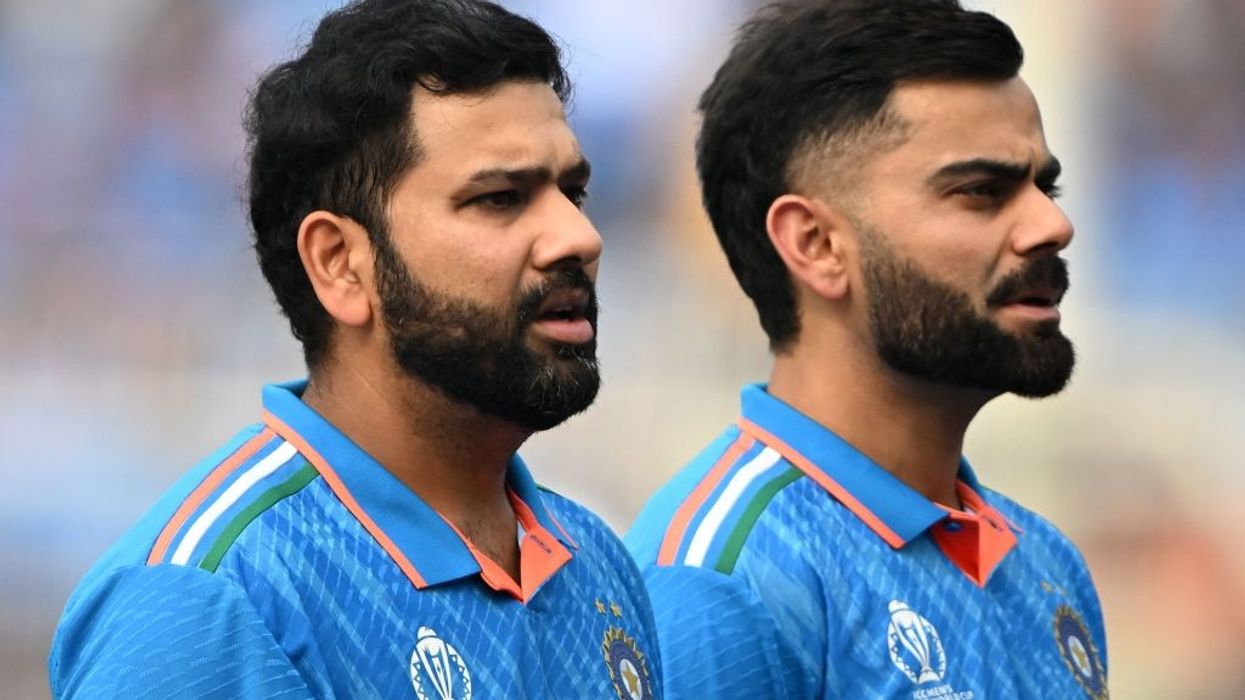SKIPPER Rohit Sharma and Virat Kohli will look to end India's global title drought as the star duo step out for what is likely to be their final World Cup appearance.
Rohit, 37, and Kohli, 35, have long been the twin torchbearers for the hopes of their cricket-mad nation, which last saw a major title triumph in the 2013 Champions Trophy.
India made the final of last year's ODI World Cup at home but lost to Australia in front of a crestfallen packed house at the world's biggest cricket stadium in Ahmedabad.
The T20 World Cup, starting June 1 in the West Indies and US may be the last chance both men have to hoist a trophy from one of the showpiece white-ball tournaments.
"Rohit Sharma knows he isn't going to play for too long now. Just two to three years more. Same with Virat Kohli," former India batsman Mohammad Kaif said on Star Sports.
"So this is the last chance for Rohit Sharma and Virat Kohli.
"They lost the World Cup final in Ahmedabad. They played as if they had the cup snatched away from them. Hearts were broken and fans were devastated."
The next T20 World Cup will be in in two years' time followed by the 50-over tournament in 2027.
The veterans will combine for India after a contrasting IPL season where Kohli dominated as a one-man run machine and Rohit's team floundered.
Kohli topped the batting charts with 741 runs for Royal Challengers Bengaluru, forming a thrilling opening partnership with the skipper Faf du Plessis.
Former India batsman Ajay Jadeja said Kohli had made his case to open for his side at the World Cup.
"For me, Virat Kohli opens," Jadeja told Jio Cinema. "If you have Virat in your side, you know consistency is the one thing you will get, so, might as well use him. He's the best at the top and the powerplay allows him to settle in."
Rohit was replaced as captain of Mumbai Indians by Hardik Pandya for this year's season and had a patchy tournament, finishing with 417 runs which included a 61-ball century against Chennai Super Kings.
Rohit, nicknamed "Hitman" for his attacking play and big-scoring, signed off in his last league match of the year with a 28-ball fifty but his previous seven innings had produced just 88 runs.
Both men have been part of India's past World Cup glories.
Rohit was part of the team's victory in the inaugural T20 World Cup in 2007 when India defeated arch-rivals Pakistan in the final at Johannesburg.
India's last World Cup win came in 2011 when a young Kohli carried cricket icon Sachin Tendulkar on his shoulders during their victory lap of the field.
Both men have faced pressure to deliver their side a title in the years since, but Kohli stepped down as T20 captain in 2021 and was then removed as ODI skipper in the same year without delivering.
Rohit, who led Mumbai to five IPL titles, picked up the baton but a World Cup trophy has proven elusive under his leadership as well.
In this year's T20 World Cup India face Pakistan, Canada, the US and Ireland in the group phase of the tournament, with Kaif saying the team had a clear run to the knockout matches.
"India hardly have competition in the group stage. There are only two main matches -– the semi-final and the final," he said.
"Are you ready for those two days? That's the biggest test for Rohit Sharma."
(AFP)





